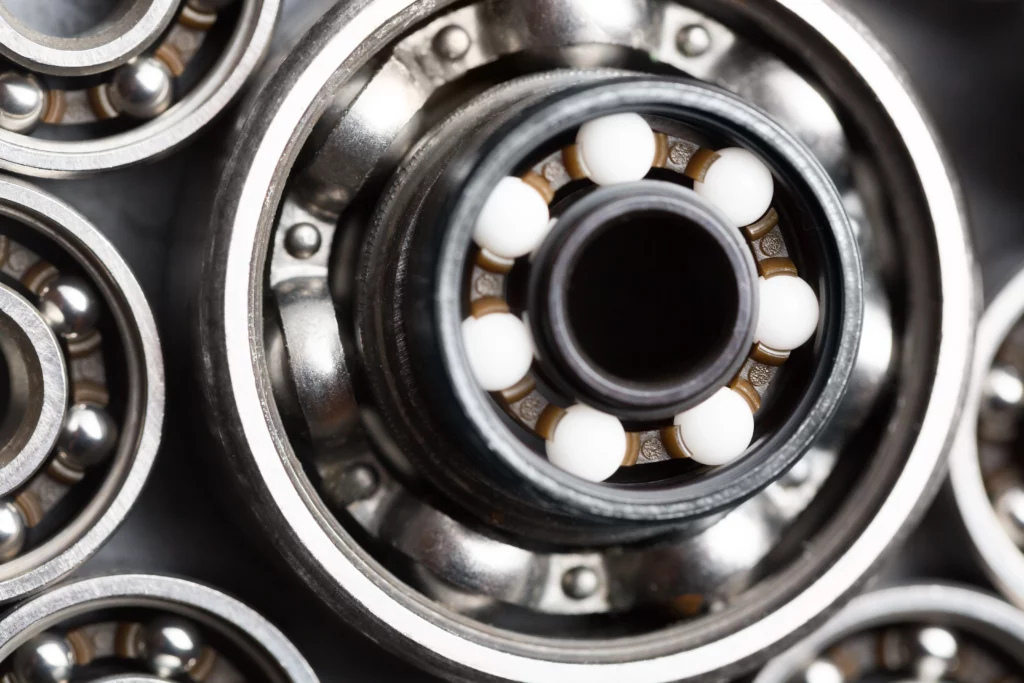MT EXPO KATOWICE
2024
m2
powierzchni targów
zwiedzających
wystawców z
19 krajów
19 krajów
konferencji
prelegentów
panele tematyczne
Międzynarodowe Targi

Międzynarodowe Targi EXPO KATOWICE (wcześniej pod nazwą: Międzynarodowe Targi Górnictwa, Przemysłu Energetycznego i Hutniczego KATOWICE) to największe w Europie i trzecie na świecie targi przemysłu ciężkiego. Kolejna edycja Targów odbędzie się 9-11 września 2026. Wystawcy zaprezentują ofertę maszyn i urządzeń oraz technologii 4.0 stosowanych w przemyśle ciężkim, w tym w OZE, w budownictwie oraz w przemyśle okołogórniczym.

O nas
Jesteśmy organizatorem Międzynarodowych Targów EXPO KATOWICE (wcześniej pod nazwą: Międzynarodowe Targi Górnictwa, Przemysłu Energetycznego i Hutniczego KATOWICE). Przygotowujemy branżowe konferencje, kongresy i misje zagraniczne. Inicjujemy i wdrażamy pomysły wspierające producentów w promocji i eksporcie towarów i usług.
Aktualności
Co dzieje się w branży?
Artykuły

City break w Katowicach
City break w Katowicach – zaskakujący pomysł na weekend!
Czy w zaledwie kilka dni da się odkryć nowoczesne Katowice pełne muzyki, sztuki i zieleni? Zdecydowanie tak! Przekonaj się, dlaczego to miasto coraz śmielej zaznacza swoją obecność na europejskiej mapie i poznaj niezwykłe szlaki, które opowiadają jego historię zupełnie inaczej, niż się spodziewasz.

PKiMSA CARBOAUTOMATYKA S.A. dołącza do grona wystawców Międzynarodowych Targów EXPO KATOWICE w 2026

QBUS SERWIS – Twoje zaufane źródło łożysk
Mówią o nas
Wszystko zawsze dopięte na ostatni guzik, dobrze zaplanowane. Kadra bardzo kompetentna, niezwykle kontaktowa i bardzo pomocna w rozwiązywaniu nieprzewidzianych sytuacji. Dużo odwiedzających, również młodzieży. Życzę dalszych sukcesów i polecam jako organizatora.
Robert Tomaszewski
Organizatorzy Międzynarodowych Targów EXPO KATOWICE są niezwykle profesjonalni i zadbali o każdy szczegół, aby zapewnić uczestnikom wyjątkowe doświadczenie. Przyciągnęli oni wielu ekspertów i przedstawicieli branży, co umożliwiło wymianę wiedzy i doświadczeń.
Sławomir Nowomiejski
Międzynarodowe Targi EXPO KATOWICE to doskonały przykład na to, jak dobrze zorganizowany może być wydarzenie. Organizatorzy zadbali o każdy szczegół, co sprawiło, że wszyscy uczestnicy czuli się komfortowo, mieli możliwość zapoznania się z ofertą Wystawców i nawiązania nowych kontaktów.
Tadeusz Nowobrzeski
Międzynarodowe Targi EXPO KATOWICE to największe wydarzenie dla przemysłu regionie. Organizatorzy dbają o wszystkie szczegóły i doprowadzili Targi do sukcesu. Przyciągnęły one wielu uczestników z całego świata, co pokazuje, że Targi są ważnym i wspaniałym wydarzeniem.
Arkadiusz Gola
Wszystko zawsze dopięte na ostatni guzik, dobrze zaplanowane. Kadra bardzo kompetentna, niezwykle kontaktowa i bardzo pomocna w rozwiązywaniu nieprzewidzianych sytuacji. Dużo odwiedzających, również młodzieży. Życzę dalszych sukcesów i polecam jako organizatora.
Robert Tomaszewski
Organizatorzy Międzynarodowych Targów EXPO KATOWICE są niezwykle profesjonalni i zadbali o każdy szczegół, aby zapewnić uczestnikom wyjątkowe doświadczenie. Przyciągnęli oni wielu ekspertów i przedstawicieli branży, co umożliwiło wymianę wiedzy i doświadczeń.
Sławomir Nowomiejski
Międzynarodowe Targi EXPO KATOWICE to doskonały przykład na to, jak dobrze zorganizowany może być wydarzenie. Organizatorzy zadbali o każdy szczegół, co sprawiło, że wszyscy uczestnicy czuli się komfortowo, mieli możliwość zapoznania się z ofertą Wystawców i nawiązania nowych kontaktów.
Tadeusz Nowobrzeski
Międzynarodowe Targi EXPO KATOWICE to największe wydarzenie dla przemysłu regionie. Organizatorzy dbają o wszystkie szczegóły i doprowadzili Targi do sukcesu. Przyciągnęły one wielu uczestników z całego świata, co pokazuje, że Targi są ważnym i wspaniałym wydarzeniem.
Arkadiusz Gola

